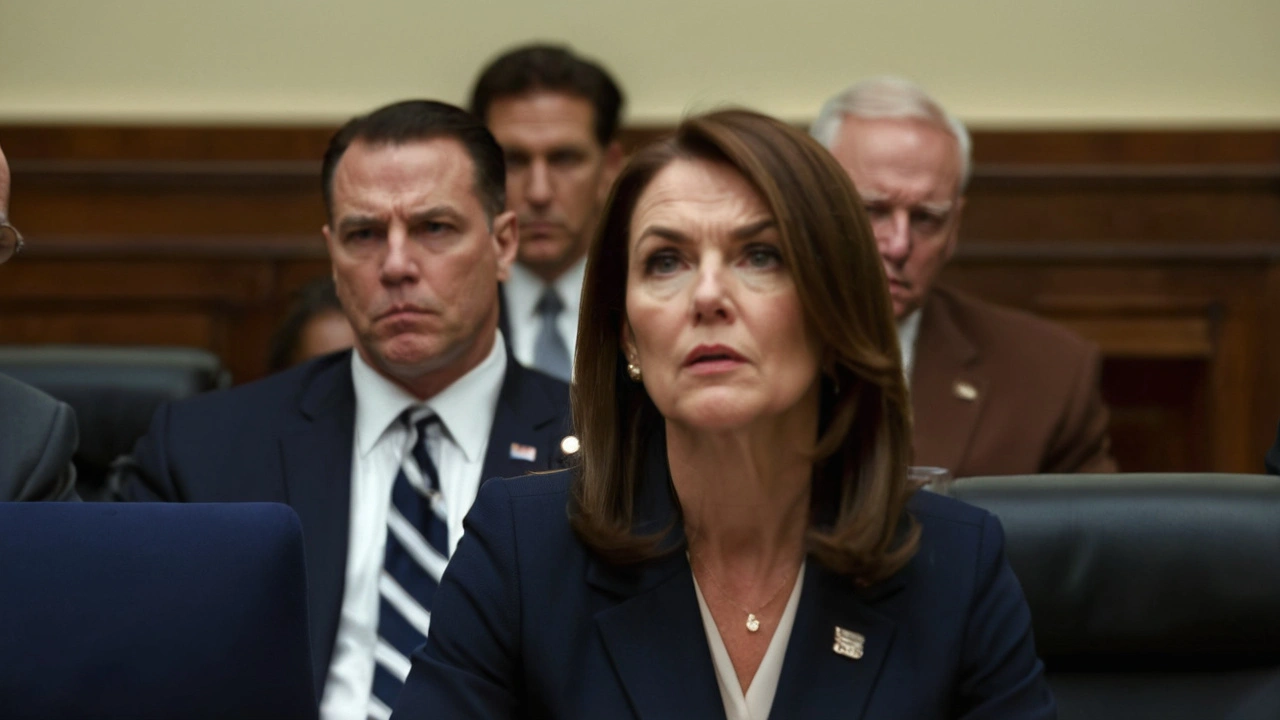Bipartisan Call for Secret Service Director's Resignation After Grilling Over Trump's Rally Security Failure
 Jul, 23 2024
Jul, 23 2024
Bipartisan Call for Secret Service Director's Resignation After Grilling Over Trump's Rally Security Failure
In a dramatic congressional hearing on July 22, 2024, Secret Service Director Kimberly A. Cheatle faced intense scrutiny from lawmakers across party lines regarding her agency's glaring security lapses during a campaign rally for former President Donald J. Trump. The hearing, which lasted several hours, turned into a contentious affair as both Democrats and Republicans pressed Cheatle for answers that she seemed unable or unwilling to provide.
The issue at hand stemmed from a disturbing incident on July 13 in Butler, Pennsylvania, where a gunman managed to get dangerously close to President Trump during the rally, even taking a shot at him. The episode raised critical questions about the competence and preparedness of the Secret Service, and it was this vein of inquiry that lawmakers pursued with a sense of urgency and frustration.
Details of the Incident
During the July 13 rally, the atmosphere was charged with the usual fervor that accompanies Trump events. However, amid the chants and the sea of red hats, an ominous threat lurked. A gunman, whose identity and motives are still under investigation, breached the outer security layers and fired shots towards the stage where Trump was speaking. Although Trump escaped unharmed, the incident exposed severe vulnerabilities in the Secret Service’s operational protocols.
Lawmakers focused on several alarming points during the hearing, one of which was the exact number of agents assigned to protect Trump that day. Cheatle, however, repeatedly declined to specify the number, citing security protocols. This reticence fueled suspicion and anger among the committee members, who accused her of evasion. In particular, Representatives Jamie Raskin of Maryland and James R. Comer of Kentucky, the committee’s leading Democrat and Republican respectively, epitomized the bipartisan nature of the outrage.
Security Perimeter and Strategic Oversights
Another critical failure concerned the security perimeter around the event. It came to light that the Secret Service had decided to leave a nearby rooftop outside of the secured zone, a decision that proved disastrous as the gunman used the vantage point to get into position. When pressed for an explanation for this strategic oversight, Cheatle’s responses were vague and unsatisfactory, further inflaming the committee's concerns.
Compounding the criticism was the apparent lack of timely awareness among the Secret Service agents about the gunman’s presence. By Cheatle’s own admission, the agents were only alerted to the gunman in the final moments before he fired, highlighting a critical breakdown in surveillance and situational awareness. This failure prompted Representative Comer to question the basic readiness and training of the Secret Service personnel, a sentiment echoed by his colleagues.
Evasive Responses and Lawmaker Frustration
Throughout the hearing, Cheatle's demeanor and responses only served to exacerbate the situation. Her answers often seemed evasive, and at times, she appeared to be less informed than the lawmakers questioning her. This impression of unpreparedness and obfuscation only deepened the lawmakers' frustration. Representative Raskin pointedly remarked on the “unacceptable gaps in knowledge and accountability within an agency so critical to national security.”
As the hearing progressed, the calls for Cheatle’s resignation grew louder and more resolute. The bipartisan nature of these demands underscored the seriousness of the issue; it was not just a political maneuver but a genuine concern for the efficacy and reliability of the nation's premier protective service. The Secret Service, an institution revered for its professionalism and efficiency, now found itself under a cloud of doubt and distrust.
Implications for the Secret Service
The implications of this hearing extend far beyond the potential resignation of Kimberly A. Cheatle. It casts a long shadow on the Secret Service’s operational integrity and its ability to fulfill its primary mission – protecting the nation's leaders. If the agency cannot effectively safeguard a former president during a public event, it raises unsettling questions about its capacity to defend sitting presidents, vice presidents, and other key officials.
Critics argue that the incident in Butler is symptomatic of broader systemic issues within the Secret Service. These include staffing shortages, budget constraints, and potential lapses in training and preparedness. There are calls for an extensive review and overhaul of the agency’s protocols, training programs, and resource allocation to ensure that such failures do not recur.
Public and Political Reaction
The public reaction to the hearing has been one of pronounced concern and anxiety. Given the high stakes involved in presidential security, the idea that a gunman could come so close to carrying out an assassination attempt is deeply unsettling. On social media and news platforms, citizens are expressing a mix of outrage and disbelief, questioning how such a lapse could occur in an agency tasked with the highest level of protective service.
Politically, the incident has created a rare moment of unity between Democrats and Republicans. Traditionally, issues of national security often see bipartisan support, but the visceral nature of the hearing's revelations has taken that cooperation to a new level. Both sides recognize that the flaws exposed in the Secret Service’s operations could have catastrophic consequences if not addressed promptly and effectively.
Cheatle’s Response and Future Prospects
In the wake of the hearing, Cheatle has released a brief statement acknowledging the concerns raised by the lawmakers. She vowed to conduct an internal review of the events in Butler and to implement necessary changes to address the identified deficiencies. However, her statement has done little to assuage the mounting calls for her resignation.
The coming days are likely to see increased pressure on Cheatle to step down, as lawmakers and the public alike demand accountability. Whether she resigns or not, the incident in Butler and the subsequent hearing have spotlighted the need for urgent reforms within the Secret Service. As the agency navigates this turbulent period, the imperative to restore confidence and ensure the highest standards of protection remains paramount.